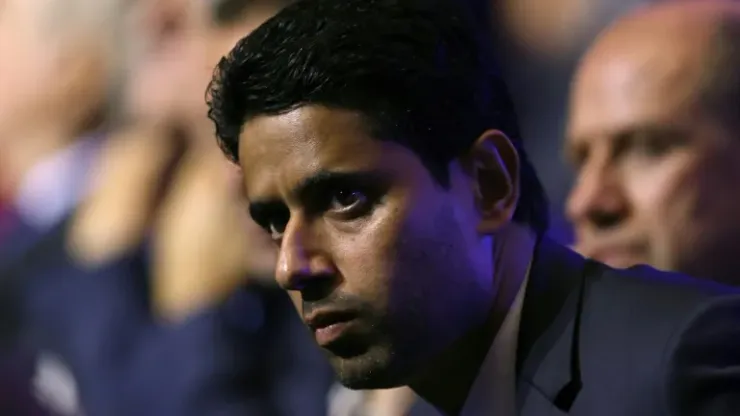Rome (AFP) – PSG chairman and beIN Media chief Nasser al-Khelaifi faced fresh accusations Friday as Italian police said he had put a Sardinian villa at the disposal of disgraced ex-FIFA executive Jerome Valcke.
Italian police, who searched the villa on Thursday, said Khelaifi had used the property as “a means of corruption”.
Khelaifi and Valcke, who was Sepp Blatter’s right-hand man at FIFA, were placed unber investigation by Swiss prosecutors on Thursday over the sale of World Cup media rights.
FIFA said Friday it was also investigating Khelaifi, a Qatari, over the media rights issue.
The world football body’s Ethics Commission “opened a preliminary investigation into Nasser al-Khelaifi on Thursday evening”, a FIFA spokesman said.
Italian police said they had searched and seized the luxury “Villa Bianca” property in Porto Cervo, owned by an international real estate agency and with an estimated value of seven million euros ($8.3 million), in a raid conducted in the presence of a “representative of the Swiss government”.
Several people “linked to various titles to the company that owns the villa” have been questioned, police added.
Valcke’s lawyer denied any wrongdoing, telling AFP his client had paid rent for the villa.
“There was a contract and Mr Valcke paid the rent,” Stephane Ceccaldi said.
The Swiss attorney general’s office said their probe into Valcke and Khelaifi focused on media rights for upcoming World Cups between 2018-30 and includes allegations of bribery, fraud, criminal mismanagement and forgery of a document.
Prosecutors have indicated that Khelaifi was under suspicion only for actions taken as the head of the beIN group, which operates on five continents.
The Qatar broadcaster has denied any wrongdoing while confirming French authorities had raided the company’s Paris offices at the request of Swiss authorities.
Khelaifi oversaw Paris Saint-Germain’s world record signing of Brazilian superstar Neymar in August.
The audacious 222 million euro transfer from Barcelona was widely seen as an example of gas-rich Qatar, which will host the 2022 World Cup, exercising its “soft power”.
The club, which was bought by Qatar Sports Investments in 2011, is not implicated in the Swiss investigation.
200+ Channels With Sports & News
- Starting price: $33/mo. for fubo Latino Package
- Watch Premier League, Women’s World Cup, Euro 2024 & Gold Cup
The New Home of MLS
- Price: $14.99/mo. for MLS Season Pass
- Watch every MLS game including playoffs & Leagues Cup
Many Sports & ESPN Originals
- Price: $10.99/mo. (or get ESPN+, Hulu & Disney+ for $14.99/mo.)
- Features Bundesliga, LaLiga, Championship, & FA Cup
2,000+ soccer games per year
- Price: $5.99/mo
- Features Champions League, Serie A, Europa League & Brasileirāo
175 Premier League Games & PL TV
- Starting price: $5.99/mo. for Peacock Premium
- Watch 175 exclusive EPL games per season






